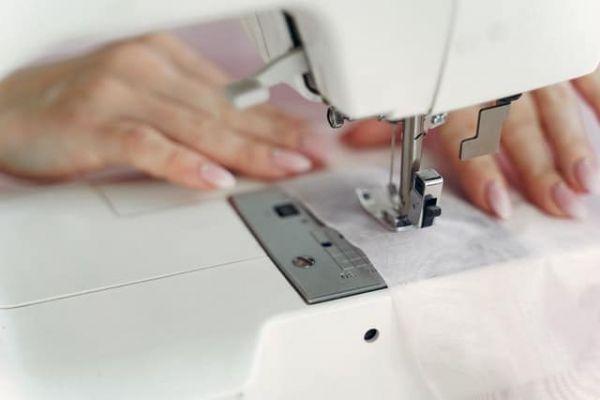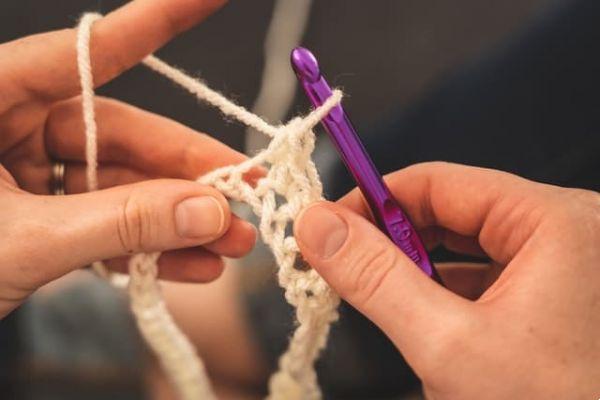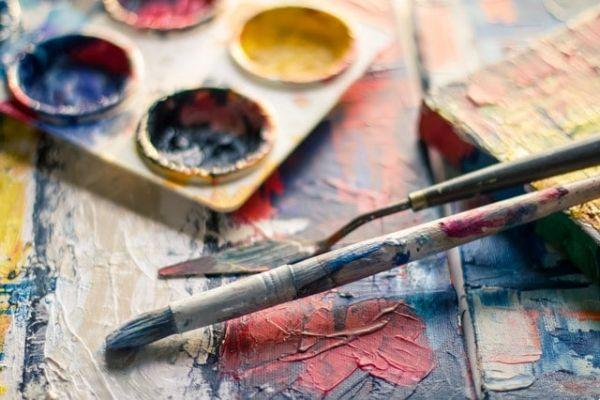They are not just distractions to break the monotony of your daily work.
At almost every moment, I have a side project running.
Often it's a new blog, a Tumblr, a book, or a newsletter. Sometimes I try to customize WordPress themes. Other times, I try to photograph. These new projects and improvements are made by our entire team. We love finding ways to grow, excel and improve ourselves through projects and hobbies.

I have yet to create the next Uber or Gmail—million dollar and million user companies that started with side projects.
The good news: You don't have to start a million-dollar company to earn credit for a side project or creative hobby.
Spending your time this way can make you happier, healthier, and more productive.
The psychology of side projects
When Google started, its famous 20% rule (employees could spend 20% of their time having fun, or venturing into side projects) resulted in people being 80% more productive and creative. Side projects boosted performance at work. Some research has been done to explain this phenomenon.
You may also like
- Discover 25 ways to nourish your soul
- We need to talk about burnout syndrome
- How can listening to music train you to be more attentive and generate love?
San Francisco psychology professor Dr. Kevin Eschleman, and his colleagues measured the effect of creative hobbies on 400 employees. In two separate groups—one rated by co-workers and the other by self-employed people—those who had a creative hobby were more collaborative, available, and creative in their professional performance.
As an added bonus, outside of work, those with hobbies felt more relaxed and in control. Eschleman says:
“The result indicates that organizations can benefit from encouraging their employees to engage in creative activities in order to recover from work. Creative activities are likely to provide valuable experiences of mastery and control, but they can also provide employees with discovery experiences that uniquely influence their performance.”
Recovery is an important psychological function brought about by hobbies and side projects. Eschleman's study highlights the importance of creativity and recovery, and an article by the European Journal of Work and Organizational Psychology cites a number of factors linked to leisure—or lack thereof—and recovery.

From a psychological perspective, it would be better if people engaged in activities where they felt challenged and tried to match them to their abilities. Of course, this also applies to work: the best experiences are positively related to mental health. However, in our society, leisure is used as an “escape” from work. “Escapism” in this regard means that people do not look for meaning in their leisure activities for their own growth and development, but instead turn to them in order to escape the problems and stresses of everyday life. Such behavior is often associated with a passive and tedious way of life, which can become apathetic and depressed.
Boston University sociology professor Dr. Juliet Schor, calls this phenomenon the “work-spend-work-spend mentality”. We work hard so that we can spend more, and the more we spend, the harder we work.
Side projects and creative hobbies help us stop this cycle and encourage a more creative and productive version of ourselves in our spare time.
Low risk, low pressure and love: the three laws of side projects

This probably goes without saying that side projects are different from work projects. But how exactly? Creating a website might be a work project for you, but not for me. For some people, playing the piano is a career; for me, it's a creative hobby.
In a Medium post, Hiut Denim Co explains this through a process behind the side projects that have been extremely impactful on the careers of Hiut's co-founders. They believe that side projects follow 3 rules.
- They are not responsible for your life. You can still support yourself if they fail.
- They don't have deadlines. And since there's no pressure, you don't go into automatic mode as usual. You try new things and take risks.
- This is a Labor of Love. You provide the “Work” and the “Love”. So when you spend your time on it, it's because you really want to. That's what pushes you forward.
LOW RISK, LOW PRESSURE AND LOVE
It would be quite difficult to find these three concepts in the same place in the corporate world. Many work projects don't even have two—if not three—of these elements. High-risk, high-pressure tasks represent the flip side of creative pursuits. So without side projects, things get out of balance very quickly.
Through professional balance, parallel projects and hobbies help us to improve in several areas. Here's how the Busy Building Things blog describes it:
It is also important that we are our own clients from time to time and have side projects that provide us with new skills, exercise our creative muscles and give us perspective for new and innovative ideas.
A side project, a creative hobby, or both?
When we talk about side projects and creative hobbies, are we talking about two sides of the same coin? Not exactly. Here's the best way I've found to differentiate these two concepts:
- A side project has an end, an end product (eventually).
- A creative hobby is a long-term interest.
Here's an example: musicians often have side projects. These projects can be the result of new hobbies—new instruments, new sounds, new technology. In this way, the hobby drives the project.
I found creative writing to be a very enjoyable hobby. Someday, I will turn this hobby into a side project of writing a book.
You can choose both projects and hobbies. Or you can do both at the same time. And you can choose absolutely anything that interests you and that you want to learn more about.

Your side project or hobby doesn't have to be something you're already good at. You can be creative when making your choice—anything that interests you, fulfills you, excites you. Here are some ideas to get you started:
- learn to draw
- Learn to program
- Sell something online
- Write a book
- create a blog
- Make a course
- give classroom
- volunteer
What ideas could you add to this list?
How to keep a side project and hobby active
Knowing the advantages and methods of starting a project or a hobby is one thing. Now, there is also the challenge of overcoming obstacles that come your way. Here are some tips for creating a project or hobby that is both refreshing and sustainable.
Find time. One of the biggest obstacles is having time to dedicate your activities. I like how Rachel Andrew of A List Apart describes it: “Finding time often depends on having a goal that is meaningful and important to you, a goal that is valuable enough to be a priority.”
Focus on the now, not the end. Keep your attention on the task at hand. A side project means having little pressure: you're doing the work because you love it, not to get paid.

Divide the project into parts. I'm borrowing this idea from the corporate world. It's often easier to move forward with a project if it's not so daunting to get started.
Match your interests. If you're struggling to keep up with a project or hobby, reconsider your options to do something you already know. If you love writing, try learning a new writing style rather than venturing into something new like design or programming.
Developing a project or hobby can provide a great psychological boost and boost productivity at work. Find something that is low risk, low pressure, work for love and you will find your project.
What projects or hobbies are you looking for? What would you like to try but haven't started yet? I'd love to hear your experiences and ideas in the comments.
Text written by Amanda Magliaro from the Eu Sem Fronteiras Team.

























